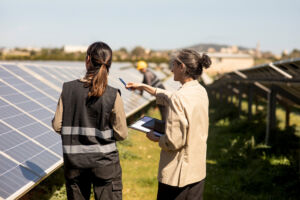In the EU project EUPOPP, seven research institutions are examining and evaluating political strategies and tools for sustainable consumption.
Research approach
In EUPOPP (Policies to Promote Sustainable Consumption Patterns), the partners involved take an interdisciplinary approach to investigating whether the political tools currently in place really do contribute towards more sustainable consumption patterns. The project focuses on home-living and nutrition.
Evaluating the tools
The scientists evaluate the tools and develop them further on the basis of trend analyses. The results are discussed in stakeholder workshops held parallel to the project, the objective being to show politicians and other decision-makers ways of reducing the negative effects of consumption on man and his environment.
Gender-specific impact and case studies
ISOE examined the impact of political tools and strategies from a gender-specific perspective. This was about looking at how the effect of such tools is influenced by the different life situations, experiences and needs of men and women, and how these aspects can be better factored in. Furthermore, ISOE was involved in a case study on the impact of the German Beverage Container Act.
Background
At the 1992 UNCED conference in Rio de Janeiro, the issue of promoting sustainable production and consumption patterns was given a priority upgrade within the international political and research agenda. Consumption is a crucial lever via which to further sustainable development. Indeed, non-sustainable consumption involving the overexploitation of renewable resources and the deployment of non-renewable resources is one of the main causes of global environmental degradation.
Cooperation partners
Öko-Institut e.V.
National Consumer Research Centre, Finland
University College London
Baltic Environmental Forum
ecoinstitut Barcelona
ICLEI - Local Governments for Sustainability
Funding
7th European Framework programme

